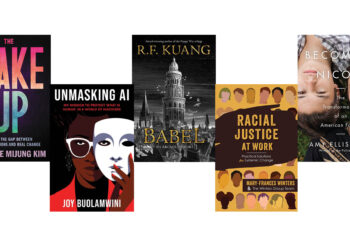- Image via Wikipedia
Joe Wikert recently wrote a very insightful post about yet another missed opportunity for traditional bookstores — namely, their reluctance to carry e-reading devices in their stores or, when they do, their insistence about carrying only their e-reading devices.
Wikert notes that while Amazon has been finding bricks-and-mortar retail space for the Kindle at Target, Best Buy, and (soon) Staples, you can’t find one at Barnes & Noble or Borders (or at any local bookstores I know of). Yet, Amazon sells the Kindle, the Sony Reader, the Nook, and the iPad.
Amazon is serving its customers — it sells the content and the devices people want. It has made the Kindle a platform as well as a device, allowing Kindle content to be read on nearly any device. It realizes its interests are its customers’ interests.
Not so for traditional bookstores, it seems.
And that’s just bewildering to me — not only because customers should be the heart of any business, but because bookstores have had no problem expanding into areas that are really tangential to reading and book purchasing:
- Coffee shops
- Greeting cards
- Gifts
- Games
- DVDs
- Music CDs
- Clothing
- Cafés
- Candles
Yet, when there are highly desired and interesting new e-reading devices to put in their stores, with a demonstrated ability to attract customers and drive purchases in addition to ultimate suitability to a physical store because they are highly designed physical objects, booksellers don’t modify their stores and retail model to include such things. It’s a huge wasted retail and marketing opportunity. Imagine a flier from your local bookstore arriving with the message, “Now, the Amazon Kindle and iPad are available for purchase here. Come take a look.” I know that at least half of the people in my neighborhood have never seen a Kindle or Nook, but would travel to our local bookstore to see what they’re like and consider purchasing one. I’ll bet the foot traffic increases would be significant, and sales to book lovers would be relatively easy.
Is this how unimaginative and unfocused bookstore managers have become? They could even make their Web sites into e-content hubs in a similar manner.
As Wikert puts it:
So if you’re B&N or Borders, what do you have to lose by selling the iPad in your stores, for example? Don’t stop there though. Come up with a compelling reason why someone buying an iPad in your store should go to your ebook store (not Apple’s or Amazon’s) so that you get a cut of the device sale but, more importantly, you earn the longer-term ebook business of that same customer. Heck, even a simple loyalty program for customers who buy an iPad from you is a good start; give them a special discount on the purchase of their first couple of ebooks.
E-readers are part of a new book purveyance reality. Traditional bricks-and-mortar booksellers should embrace this fact.
Sadly, they seem to be missing the boat. To me, it’s becoming axiomatic that online retailers are winning because they’re better retailers. Bookstores used to be excellent retailers of the reading culture. Apparently, they’re abdicating this former advantage in the age of the e-reader.
Discussion
5 Thoughts on "Another Missed Opportunity for Bookstores — Hardware Lessons from the E-Reader Space"
Much of the problem is that the device manufacturers won’t sell to individual bookstores, even through existing distribution channels. Your locally owned independent bookstores would, in many cases, love to offer their customers ereaders and the ability to download ebooks. Sadly, this has not been possible, through no fault of the bookstores. They’ve been trying.
Even harder in Australia/New Zealand where we are only just starting to see eReaders become available.
If we could sell them, trust us, we would!
Give us readers, give us content, our customers want them, we want them to buy through local stores, not Amazon or Book Depository, but by not enabling the bookstores to sell eReaders & eBooks we’re creating bad book buying habits.
Perhaps they’re still seduced by the iPod/iTunes model Apple succeeded with years ago. Controlling the market for hardware and content puts one in a powerful position, and given the still unsettled waters of the eBook market, perhaps the B&N’s and the Borders of the world think they can still pull it off. Amazon has taken a much more pragmatic approach, looking to be a winner in the content department, being willing to let their hardware be relegated to a niche if need be.
But for the bookstores, I could see selling a multi-use device like the iPad, which allows one to buy B&N eBooks or Borders eBooks. Sell the razor handle to have the opportunity to sell razor blades. But there’s no reason any bookstore would sell the Kindle, as it’s limited to eBooks from Amazon. Selling that is essentially cutting your own throat in the eBook content market.
Bookstores sell games, DVD’s and CD’s but do they sell the players? Not usually, if at all. Selling electronics is a very different, knowledge intensive business. Target and Staples already have electronics departments.
I have seen very extensive Nook displays at the B&N stores in my area but the staff did not appear to have the best understanding of how it worked or all the features. If they can’t get their own product sold properly, I wonder if they could really sell an iPad — add on products such as paper, notebooks, games, don’t require much staff knowledge except to point you in the right direction.
It is a great idea if they could staff it correctly — B&N is up for sale maybe Apple could buy them!




